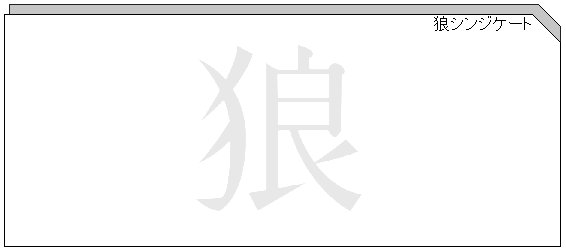
TATTOOS: Yakuza often tattoo their entire bodies starting with their backs. It dates back to the Bakuto Yakuza who used to tattoo their arms with a black band for each crime they committed. In order to tattoo their whole bodies, they must endure over a hundred hours of pain. The tattoos signify two things: That the Yakuza are rebelling against society's rules by marking their bodies; and that the Yakuza are strong and willing to endure any pain.
YUBITSUME: Yubitsume is the act of cutting off one of your fingers and sending it to the yakuza boss. This is usually done as an apology for an act of wrongdoing or disobedience. It starts with the fingertip, but with each wrongdoing you go further down: tip, forefinger and so on. The tradition is derived from the Bakuto Yakuza. When these gamblers couldn't pay back their debt, they paid the damage with their fingers.
Where did the Yakuza originate?
Dating back to the early 1600's, the first Yakuza were known as Kabuki-Mono (literally the crazy ones). They were masterless samurai and ronin dressed in unusual clothing and distinctive haircuts, who robbed and pillaged villages and small cities. Out of this came the Machi-Yakko (city servant), who defended the cities against the Kabuki-Mono.
Machi-Yakko were storeowners and barkeeps who were the inspiration for many folk tales and plays. As the middle of the 17th century rolled around, two different divisions came to be of what we consider modern day Yakuza: Bakuto, who were the gamblers and Tekiya, who were the street vendors dealing with the black market. Then, as today members of the Yakuza were usually from poor families.
When did Yakuza begin to gain influence?
After World War II as American troops rationed out food, a black market began to flourish with both liquor and specialized foods. Yakuza began to dress in black suits, white shirts, cropped hair and black sunglasses: an homage to the American gangster. Knives and swords were replaced by guns and other firearms and no one was safe as violence began to spread to ordinary civilians. Between 1958 and 1963, Yakuza membership increased over 150%. Territories were marked and bloody gang wars began.
“Personality is born out of
pain. It is the fire shut up in the flint.” – J.B. Yeats
Throughout history, Human
fear and misunderstanding of the Wolf elevated it to the realm of the unknown. It was
both feared and revered. The Wolf's most indispensable personality trait is the
ability to exist, as part of a group, to form an attachment to others of it's
kind. Wolves are social animals of the first order. The presence of an
understood hierarchy serves the crucial purpose of eliminating conflict. This
usually consists of a pack of five to ten wolves. The pack has a defined social
structure, one that enhances their survival by collective hunting and
population control.
The
Syndicate of the Ookami is based on the principles of the Wolf, and The Way of
the Samurai, past and present. Bushido,
literally translated "Way of the Warrior," developed in Japan between
the Heian and Tokugawa Ages (9th-12th century). It was a code and way of life
for Samurai, a class of warriors similar to the medieval knights of Europe.
|
1. GI (Justice, Right Decision): Making correct decisions
from the heart rather than from the mind. To die when one must without
thought or regret. |
1. Right Decision: "I will always make correct
decisions from the heart, rather than from the mind." |
|
2. YUU (Bravery): Rushing onto the point of a sword
without hesitation if it would accomplish the greatest good. |
2. Bravery: I will never hesitate to put my needs last,
especially if it is best for the group." |
|
3. JIN (Compassion, Benevolence): Universal love
toward mankind. The ability to exhibit compassion. |
3. Compassion: "I will always show Universal Love to
all mankind." |
|
4. REI (Right Action): Etiquette and the
preservation of courtesy. The Samurai believed that it was better to
lose his life than to be impolite. |
4. Right Action: "I will always be polite and
courteous at all times." |
|
5. MAKOTO (Truth, Sincerity): Truthfulness |
5. Truth: "I will always be truthful and sincere in
everything I do." |
|
6. MEIYO (Honor): Glory without ego. |
6. Honor: "I will always be honorable in thought,
word and deed." |
|
7. CHUUGI (Devotion): Loyalty to one's Lord |
7. Devotion: "I will always be loyal to my superiors
and the members of my group." |
The Yakuza filled the role of modern Samurai. They interpret themselves as carrying on a tradition of “chivalrous outlaws," (machi-yakko), underdog fighters following an idealized samurai code of loyalty, honor, courage, selflessness, and determination.
How can society define what a man's life is worth by its standards?
"Our individual lives cannot, generally, be works of art unless the social order is also." - Charles Horton Cooley
"You can stand tall without standing on someone. You can be a victor without having victims." - Harriet Woods
First say to yourself what you would be; and then do what you have to do.- Epictetus